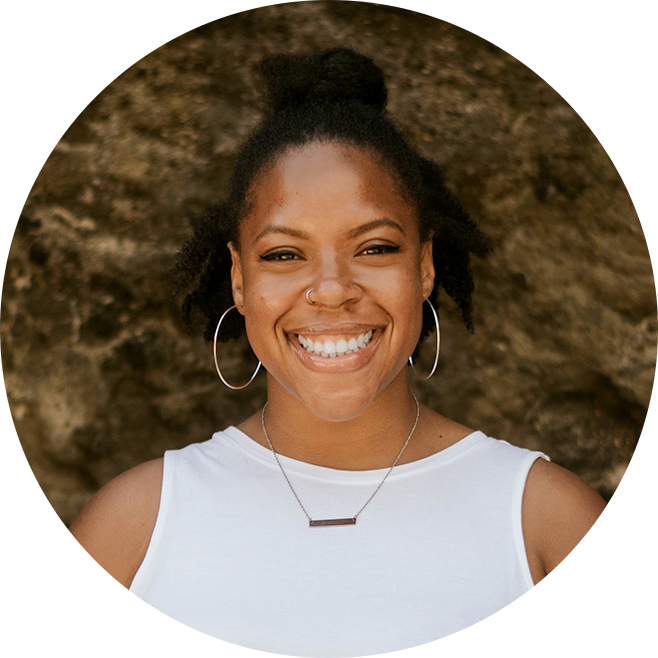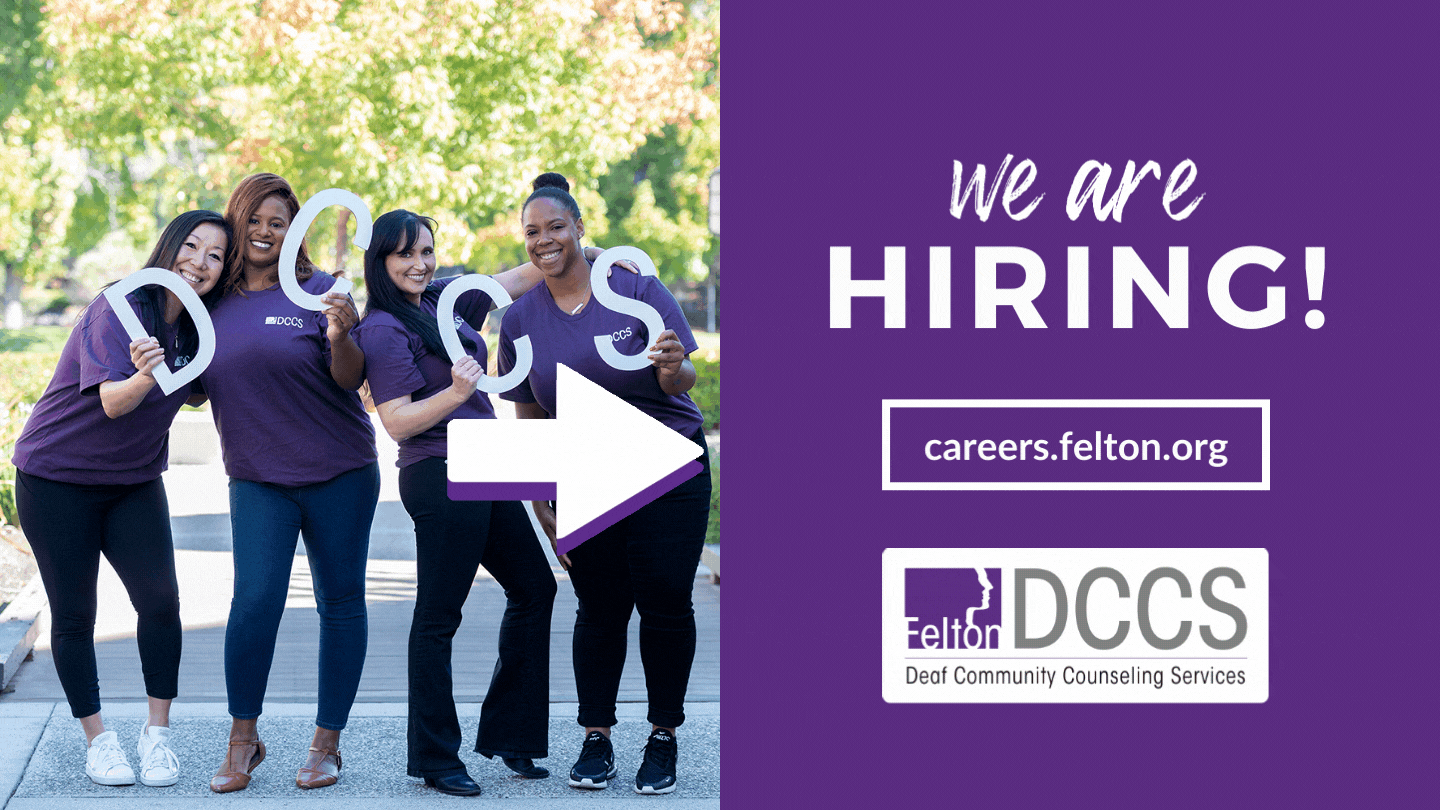Felton has always understood that equitable access to quality Mental Health services is paramount. Our commitment is reflected in the breadth of our behavioral health services and the diversity of populations served. Beyond access, what we must consider is the client-end experience once they’ve attempted to reach services. That is, what does it look like and how does it feel accessing services given a client’s particular demographic and/or lived experience. This is something Malage LeBlanc, Case Manager for Felton Institute’s Deaf Community Counseling Services (DCCS), thinks about often.

Born and raised in the Bay Area, Malage was drawn to Felton for its culture and diversity, but also out of a sense of duty. “This field [services for Deaf individuals] has been calling me for years,” she says. “I have enjoyed working in it. I came to Felton because it has a division serving the Deaf community that also offers mental health services.” DCCS empowers Deaf and Hard of Hearing clients to live self-sufficient lives through a transformative focus on their overall well-being.
Malage LeBlanc recognizes there are specific challenges inherent in serving this population as well as a need for skilled case managers. “There are many in the Deaf community who need Mental Health services that are utilizing American Sign Language (ASL) to communicate for their treatment.” Furthermore, she notes that the use of underqualified interpreters can lead to diagnostic errors during assessment. Introducing an interpreter to the assessment process can create relational complications in therapy between the client and practitioner.
Yet, there is a shortage of psychologists and other mental health professionals who have the training and experience to assess Deaf individuals. A 2016 study by Kuenburg and Fellinger in The Journal of Deaf Studies and Deaf Education, explained that mental illnesses are compounded in the Deaf community by difficulties communicating with care providers — researchers have found that lip-reading can be inadequate and interpreters who know sign language are scarce.
This is what DCCS is about – ensuring when a client has a need and accesses services from Felton, they are provided in a manner that is in line with the client’s overall being. For the Deaf and Hard of Hearing community, this may mean the use of ASL. Felton Institute Case Managers are fluent in ASL. But engagement services at DCCS go beyond the treatment itself to even how information overall is distributed and consumed: making sure videos are closed captioned whether they are being signed or not, creating signing videos to explain services offered rather than relying on printed brochures, and always considering the best way for those in the Deaf and Hard of Hearing community to communicate may not always be through the spoken/written word.

Malage “could not imagine living in another place!” She is proud to be serving the community with Felton. Case Manager LeBlanc loves her work and understands the importance for those serving in this field to be mindful to pace themselves. Her advice is, “Take GREAT self-care. If we don’t, it will impact our work and our lives.”
If you’d like to learn more about Felton’s Deaf Community Counseling Services (DCCS) program, click here to visit their website.
About Felton Institute: Founded in 1889, Felton Institute responds to human needs by providing cutting edge, evidence-based mental health and social services that transform lives. Felton Institute is a tax-exempt organization registered 501(c)(3) nonprofit under EIN 94-1156530.
Offering more than 50 acclaimed and honored programs that address homelessness, mental health, prenatal, adolescent, adult, and senior needs, Felton Institute provides services in San Francisco, Alameda, San Mateo, Marin, and Monterey counties. Felton’s social services and programs utilize the latest scientific research, combining cultural sensitivity, deep respect for client and staff, and a commitment to social justice.
Felton is the oldest non-sectarian and nonprofit social services provider in the City and County of San Francisco. For over a century, Felton Institute has been at the forefront of social service innovation, pioneering new approaches to meet underserved populations’ emerging needs. At the heart of our work is the belief that individuals and families in crisis must have access to services and resources to help them build on their inherent strengths and develop self-sufficiency. www.felton.org
